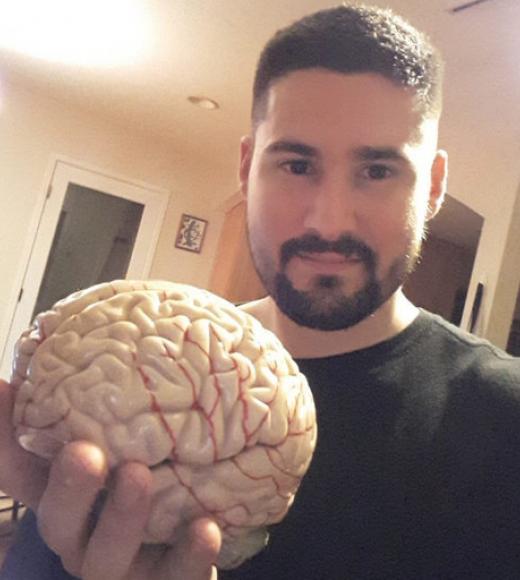
Position Title
Postdoctoral Researcher
- Neuroscience Graduate Group
- Major Professor: Johannes Hell
Research Description
Kyle’s doctoral research focused on the physiological relevance of unique ion channel regulatory complexes identified in rodent brains. In particular, he investigated the regulation of the L-type calcium channel, Cav1.2, and AMPARs by norepinephrine in familiarity and novelty learning. His research utilized targeted behavioral assays of knock-in transgenic mice to assess alterations in memory and learning. His work revealed that PKA regulation of CaV1.2 is important for learning as well as the forgetting of spatial memories, showing the importance of this signaling pathway for general plasticity and rates of learning in the brain. In addition, follow-up experiments uncovered a link between this pathway and the regulation of sustained attention as measured by reaction time variability. This discovery may represent a clinically translatable model for learning and attention in neuropsychiatric disorders, and points to a new discrete target for novel drug development.
- H.B.S. - Oregon State University - Biochem & Biophys - 2012
- Ph.D. - University of California, Davis - Neuroscience - 2021
- Wang Y, Shi Q, Li M, Zhao M, Reddy Gopireddy R, Teoh JP, Xu B, Zhu C, Ireton KE, Srinivasan S, Chen S, Gasser PJ, Bossuyt J, Hell JW, Bers DM and Xiang YK, 2021, Beta-Adrenergic Receptors and Organic Cation Transporter 3 Mediate Phospholamban Phosphorylation to Enhance Cardiac Contractility, Circulation research, 128:246-261. PMCID: PMC7856104
- Burgdorf CE, Bavley CC, Fischer DK, Walsh AP, Martinez-Rivera A, Hackett JE, Zallar LJ, Ireton KE, Hofmann F, Hell JW, Huganir RL and Rajadhyaksha AM, 2020, Contribution of D1R-expressing neurons of the dorsal dentate gyrus and Ca v 1.2 channels in extinction of cocaine conditioned place preference., Neuropsychopharmacology, 45:1506-1517. PMCID: PMC7360
- NeuroFest- 2018, 2019
- Neuroscience Initiative to Enhance Diversity (NIED) - 2019